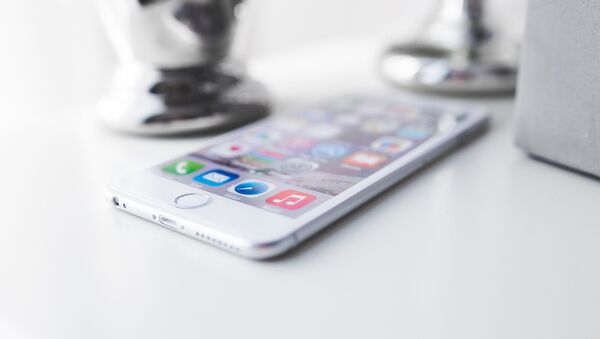French socialist MP Yann Galut has put forward an amendment that would impose a US$1,09 million (€1 million) payment to companies that do not cooperate with investigators.
Forbidden fruit: the dangers behind decrypting an #Iphone https://t.co/yDl1iQJuMG #Apple #FBI pic.twitter.com/Q5CEhENCz8
— Sputnik UK (@SputnikNewsUK) February 24, 2016
Reportedly, over the last twelve months, French police were unable to access the data on eight smartphones connected to acts of terror.
"We are faced with a legal vacuum when it comes to data encryption, and it's blocking judicial investigations," Galut told French newspaper Le Parisien.
"Only money will force these extremely powerful companies like Apple and Google to comply.
"They are hiding behind supposed privacy protection, but they're quick to make commercial use of personal data that they're collecting," he added.
France's socialist party, led by president Francois Hollande, is taking an increasingly hard-line stance over security and terror prevention, following last year's terror attacks in Paris, where 130 people were killed.
Mr Galut's amendment comes as no surprise as the FBI-Apple row plays out in the United States.
The tech giant refused to obey a court order requesting it to develop a software that would allow investigators to access data on the iPhone of one of the San Bernardino shooters.
Apple lawyers argued that the order violated the company's freedom of speech, and that developing an ad hoc software would be too burdensome, financially.
Apple also claimed that a "backdoor" could be used to breach the security measures of other phones, putting at risk the privacy of millions.
#FBI request to unlock iPhone violates civil rights — #Apple https://t.co/rBopJrwoj7 pic.twitter.com/SjQmfgoaFm
— Sputnik UK (@SputnikNewsUK) February 26, 2016
The FBI and the company are set to lay out their opposed arguments in a congressional hearing Tuesday.
On Monday, a New York court looking at a similar but separate case — in which Apple had challenged a request to unlock a criminal's iPhone — ruled in favor of the tech giant.
France's move makes it clear how an all-out clash between governments and tech companies over privacy and safety is looming large throughout the western world.
The powerful tech sector is rallying behind Apple, with the best and brightest of the Silicon Valley, from WhatsApp to Twitter, Facebook to Microsoft expressing their support for the company's decision.
Even Apple's arch-rival Google, the other big global player in the smartphone software sector, praised the iPhone maker's decision.
Speaking at a conference in Paris last week, Google's CEO Sundar Pichai said that creating "backdoors" into encrypted devices at the authorities' behest would be dangerous.
"We want to take a very strong stance against any form of backdoor whatsoever," Pichai said.
"When you create backdooors it leads to very, very bad consequences which always ends up harming users."




